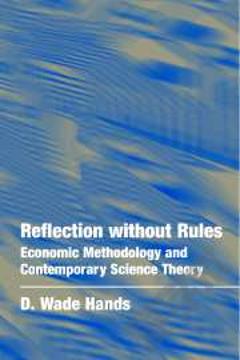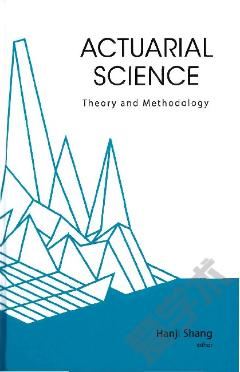Reflection without Rules: Economic Methodology and Contemporary Science Theory
Reflection without Rules: Economic Methodology and Contemporary Science Theory By D. Wade Hands. Cambridge, UK: Cambridge University Press, 2001. Pp. xi, 480. $95.00. I have known Wade Hands for nearly 20 years, and he has two characteristics that make him the perfect author for the volume under review. The first is that he reads everything. The second is that he is a master of the critical survey. Both traits are amply on display in this new book on economic methodology. It is, to use one of Hands's favorite phrases, the "next generation" survey of economic methodology. Anyone who merely wishes to be minimally conversant about the latest developments should read it, but it is also an ideal reference work for anyone working in the field, for in addition to its many substantive contributions, it contains a complete bibliography as well as Web site addresses for keeping up with any future additions to the literature. Having said all that, it should quickly be added that Reflection without Rules is more than a survey: It is also an argument. The major themes are that, as Virginia Wolff might have put it, on October 18, 1989, the world of economic methodology changed forever but that we need not fear the brave new world we now inhabit. I'll explain the dating a little later. Hands's argument, a little less baldly put, is that the "shelf of scientific philosophy" view of economic methodology, whereby one picks a book by the philosopher du jour and then uses his or her categories to analyze how scientific economics is (or is not), is dead. This approach to methodology emerged earlier in the twentieth century, not coincidentally at about the same time that logical positivism and, later, logical empiricism came to dominate discourse within the philosophy of the natural sciences. These doctrines laid out rules and procedures that all "real sciences" were supposed to follow and criteria that they were supposed to meet. In our eagerness to establish our scientific credentials, economists (and, to be sure, certain other social scientists) adopted the rhetoric of positivism in talking about what we do. But there was a problem: Our practice never really matched up very well with the rules and criteria. Now, interestingly enough, it turns out that there was no need for embarrassment about this, for no science's practices ever matched up very well. As a consequence, the variety of positivist and logical empiricist beliefs that have since been dubbed the "Received View" (or more recently, the "Legend") began to fade from the philosophical scene by the early 1970s. What is embarrassing is that once the Received View was pronounced dead, it was rather hard to see where to go. My own book on methodology, first published in the early 1980s, was titled Beyond Positivism (Caldwell 1994), and the title was meant to make just that point: What lies beyond positivism? What do philosophers and methodologists studying the separate disciplines do, now that the Legend is gone? And if economists are not following the Received View, how do we describe what economists do? Hands's book examines the variety of answers to those questions that have arisen in the interim. In the compressed history just offered, I moved a little too quickly, because within the methodology of economics, the death of the Received View was at first accompanied by the ascendance of Popperian and related thought. Because certain variants of Popperian thought (especially falsificationism) are, like the Received View, heavily prescriptive, it was often lumped together with the latter by some. (Popper once proclaimed that he had killed positivism, so he clearly did not share this view.) This did not happen in economics, though, at least not right away. The main reason was that two of the most influential writers on economic methodology, Terence Hutchison and Mark Blaug, claimed that the frameworks provided by Popper and by his student Imre Lakatos were appropriate vehicles both for understanding and for criticizing the practice of economists. â¦
{{comment.content}}








 京公网安备 11010802027623号
京公网安备 11010802027623号